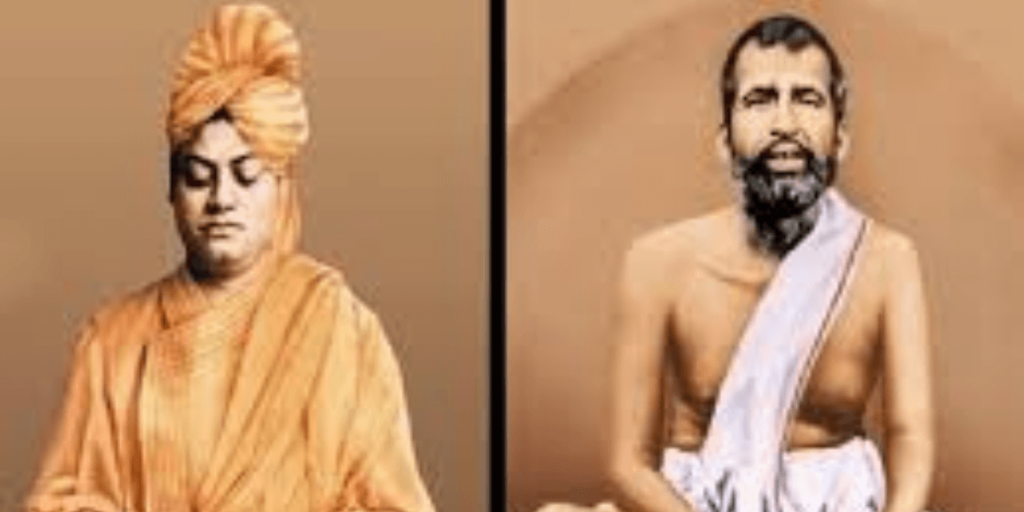Swami Vivekananda was accurate when he said that education is about changing a person’s mind, spirit, and character, not only about imparting knowledge. Swami Vivekananda’s educational theories go beyond conventional classroom instruction and focus on holistic growth, self-realisation, and self-discovery. His deep teachings have had a lasting impact on intellectuals, educators, and students all across the world, guiding them on a path to enlightenment and a fulfilling life.
The Foundation of Real Education
The scope of Swami Vivekananda’s conception of education goes beyond the boundaries of textbooks and tests. He emphasised the value of holistic education, emphasising the development of a person’s physical, mental, emotional, and spiritual elements. He held the view that education should enable people to realise their innate potential and make valuable contributions to society.
He said it best himself: “Education is the manifestation of the perfection already in man.” This claim emphasises the idea that education is a process of bringing each person’s intrinsic brilliance to light rather than an external force that shapes them. Vivekananda asserted that genuine education creates a feeling of self-awareness and aids people in realising their own special talents.
Building Character Through Education
The development of character is the ultimate purpose of education, according to Swami Vivekananda. He felt that humans should be taught virtues like honesty, integrity, compassion, and bravery through education. He is credited with saying, “We want that education that forms character, strengthens the mind, expands the intellect, and enables one to stand on one’s own two feet.”
Read Our Post: Role of Education in Human Capital Formation
For Vivekananda, education meant more than merely learning facts; it meant instilling qualities that would direct people’s actions and judgments. He held the view that an educated person should not only be knowledgeable but also have the moral fortitude to apply that knowledge to advancing society.
The Power of Self-Reliance
The value of independence is a major tenet of Swami Vivekananda’s teachings. He held the view that education should enable people to think for themselves, make thoughtful decisions, and take ownership of their life. He promoted a practical education that gives students the tools they need to support themselves while also building a sense of self-confidence.
The quote of Vivekananda, “They alone live who live for others, the rest are more dead than alive,” perfectly captures his viewpoint on how intertwined all people are. He thought that education may produce people who are not only self-sufficient but also committed to helping others and making a meaningful contribution to society.
Learning and the Search for the Truth
Swami Vivekananda was a fervent supporter of the search for knowledge and the truth. He exhorted people to ponder, investigate, and look for deeper purposes in life. He thought that education should encourage a spirit of inquiry and critical thinking rather than just rote learning.
Vivekananda said, “I fervently hope that the bell that tolled this morning in honour of this convention may be the death knell of all fanaticism, of all persecutions with the sword or with the pen, and of all uncharitable feelings between persons wending their way to the same goal.” Vivekananda was speaking at the Parliament of the World’s Religions in 1893. His assertion that education should obliterate prejudice is reflected in his plea for tolerance and open-mindedness.
Liberation via Education
Swami Vivekananda firmly believed in the spirit of humanity’s freedom. He held the view that education should free people from the shackles of ignorance, superstition, and social limitations. He highlighted that real education should help people discover their better selves and liberate them from the constraints that keep them back.
The teachings of Vivekananda exhort people to challenge societal conventions and dogmas and work toward their own spiritual development. He thought that education should enable people to reach their full potential as heavenly creatures and lead fulfilling lives.
Education and Personality
The true test of education, in the opinion of Swami Vivekananda, is the development of character. He highlighted that learning shouldn’t only be rote memorization but rather a transforming journey that shapes a person’s character. He felt that character traits like humility, empathy, and resilience should be encouraged through education.
The purpose of mankind, in his own words, is knowledge, which is innate in every human being. All knowledge is internal; it does not come from the outside. In exact psychological terms, what we refer to as what a man “knows” should actually be what he “discovers” or “unveils”; what a man “learns” is actually what he “discovers” by lifting the veil off his own soul, which is a mine of endless knowledge.
Education and Service
One of the pillars of Swami Vivekananda’s ideology was service to humanity. He held that education should encourage people to help those in need and advance societal welfare rather than serve the selfish goal of accumulating wealth or power. He had a vision of a society where education instilled compassion and a sense of responsibility.
Read Our Blog: New Education Policy
Vivekananda’s commitment to social justice and gender equality is seen in his statement that “the best thermometer to a nation’s progress is its treatment of its women.” He thought that education should enable people to question established norms that uphold injustice and inequity.
The Essence of Man-Making Education
According to Swami Vivekananda, the main objective of education should be to help students become better people. He came up with the phrase “man-making education” to characterise an educational strategy that not only conveys knowledge and skills but also moulds people’s personalities, morals, and attitudes. He held that education should enable people to develop into morally upright, independent, and civically accountable citizens.
The idea that each person has greatness within them, ready to be discovered and nourished, is in line with Vivekananda’s conception of education. He believed that education might help people realise their actual potential and bring forth their innate abilities.
Values and Character Development
The growth of character and values is at the core of education that creates men. According to Vivekananda, education ought to promote values like honesty, compassion, courage, and humility. He highlighted that moral values and ethical behaviour should be instilled in students through education.
The quote from Vivekananda, “Education is not the amount of information that is put into your brain and runs riot there, undigested, all your life,” emphasises how important it is to internalise ethical principles that serve as a direction for one’s behaviour.
Gurugriha Vasa or Personal contact between the teacher and the disciple

Gurugriha Vasa, or the custom of living with one’s instructor, denotes the vital significance of developing a deep and intimate relationship between a mentor and a student. This custom, which is present in many cultures and educational institutions, emphasises the idea that good learning extends beyond traditional classroom lectures. In this method, the disciple lives with the guru and absorbs not only academic information but also lessons from real-life experiences, moral principles, and useful talents. This close-knit learning atmosphere enables the development of the disciple’s character as well as a deeper comprehension of the material being studied.Such one-on-one interaction fosters a comprehensive education where mentoring goes beyond instruction and leads to a significant change in the student’s viewpoint, behaviour, and learning style. The idea of Gurugriha Vasa emphasises the enduring value of direct connections in education, serving as a reminder of the immense potential that exists within the teacher-student relationship even in today’s technologically advanced day.
Swami Vivekananda’s own education life
The educational experience of Swami Vivekananda combined academic curiosity with spiritual exploration. He was raised in a family that placed a high priority on spirituality and education. He was born Narendranath Datta in 1863. He showed a deep interest in many different disciplines while achieving academic success at the Scottish Church College in Kolkata.
But when he met Sri Ramakrishna Paramahamsa, a saint with profound spiritual understanding, his education took a radical turn. This encounter was a turning point in his life, inspiring him to think deeply about issues such as existence, self-realisation, and the nature of God.
Narendranath engaged in rigorous spiritual practices under Sri Ramakrishna’s direction, developing insights that deepened his comprehension of the deeper aspects of life. After Sri Ramakrishna’s demise, he carried on his pursuit of knowledge by exploring all of India and becoming familiar with its many cultures and traditions.
When Swami Vivekananda represented Hinduism in the Parliament of the World’s Religions in Chicago in 1893, his educational path took him to a worldwide level. His speech drew attention from all across the world and cemented his status as an inspirational figure.
Swami Vivekananda’s education throughout his life included not only academic knowledge but also deep insight into human nature and intellectual inquiry. People are still motivated by his legacy to learn more, challenge preconceptions, and delve into the deeper meanings of life.
Conclusion
The idea of “man-making education” put forward by Swami Vivekananda offers a profound and enduring viewpoint on the function and nature of education. He emphasises the value of character development, self-discovery, independence, and service to mankind in addition to traditional academic learning. Vivekananda’s observations remind us of the deeper aspects of learning that contribute to the holistic development of people and the improvement of society as a whole in a world where education is frequently narrowly defined.





